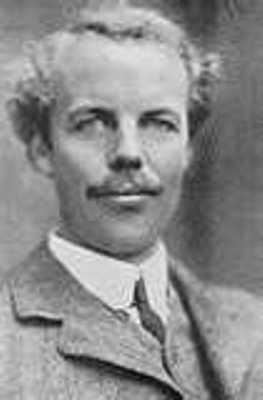Arthur Cecil Pigou
British economist known for his work on welfare economics
Arthur Cecil Pigou (18 November 1877 – 7 March 1959) was a British economist known for his work in welfare economics. He was a prominent figure in the early 20th century and made significant contributions to the field of economics, particularly in the areas of externalities and public finance.
Early life and education[edit | edit source]
Arthur Cecil Pigou was born in Ryde, Isle of Wight, England. He was educated at Harrow School and later attended King's College, Cambridge, where he studied under the renowned economist Alfred Marshall. Pigou excelled in his studies and was awarded a fellowship at King's College in 1902.
Academic career[edit | edit source]
Pigou succeeded Alfred Marshall as the Professor of Political Economy at the University of Cambridge in 1908. During his tenure, he developed many of the ideas that would form the basis of welfare economics. His work focused on how economic policies could improve social welfare and address market failures.
Welfare economics[edit | edit source]
Pigou's most influential work, "The Economics of Welfare," published in 1920, laid the foundation for the study of welfare economics. In this work, Pigou introduced the concept of Pigovian taxes, which are taxes imposed on activities that generate negative externalities, such as pollution. He argued that such taxes could correct market failures and lead to a more efficient allocation of resources.
Externalities[edit | edit source]
Pigou was one of the first economists to systematically analyze the concept of externalities. He distinguished between private and social costs and benefits, highlighting how market transactions can have unintended effects on third parties. His analysis of externalities has had a lasting impact on environmental economics and public policy.
Later life and legacy[edit | edit source]
Pigou continued to teach and write until his retirement in 1943. He remained active in academic circles and contributed to various economic debates of his time. Pigou's work on welfare economics and externalities has influenced generations of economists and policymakers.
Related pages[edit | edit source]
Search WikiMD
Ad.Tired of being Overweight? Try W8MD's physician weight loss program.
Semaglutide (Ozempic / Wegovy and Tirzepatide (Mounjaro / Zepbound) available.
Advertise on WikiMD
|
WikiMD's Wellness Encyclopedia |
| Let Food Be Thy Medicine Medicine Thy Food - Hippocrates |
Translate this page: - East Asian
中文,
日本,
한국어,
South Asian
हिन्दी,
தமிழ்,
తెలుగు,
Urdu,
ಕನ್ನಡ,
Southeast Asian
Indonesian,
Vietnamese,
Thai,
မြန်မာဘာသာ,
বাংলা
European
español,
Deutsch,
français,
Greek,
português do Brasil,
polski,
română,
русский,
Nederlands,
norsk,
svenska,
suomi,
Italian
Middle Eastern & African
عربى,
Turkish,
Persian,
Hebrew,
Afrikaans,
isiZulu,
Kiswahili,
Other
Bulgarian,
Hungarian,
Czech,
Swedish,
മലയാളം,
मराठी,
ਪੰਜਾਬੀ,
ગુજરાતી,
Portuguese,
Ukrainian
Medical Disclaimer: WikiMD is not a substitute for professional medical advice. The information on WikiMD is provided as an information resource only, may be incorrect, outdated or misleading, and is not to be used or relied on for any diagnostic or treatment purposes. Please consult your health care provider before making any healthcare decisions or for guidance about a specific medical condition. WikiMD expressly disclaims responsibility, and shall have no liability, for any damages, loss, injury, or liability whatsoever suffered as a result of your reliance on the information contained in this site. By visiting this site you agree to the foregoing terms and conditions, which may from time to time be changed or supplemented by WikiMD. If you do not agree to the foregoing terms and conditions, you should not enter or use this site. See full disclaimer.
Credits:Most images are courtesy of Wikimedia commons, and templates, categories Wikipedia, licensed under CC BY SA or similar.
Contributors: Prab R. Tumpati, MD

